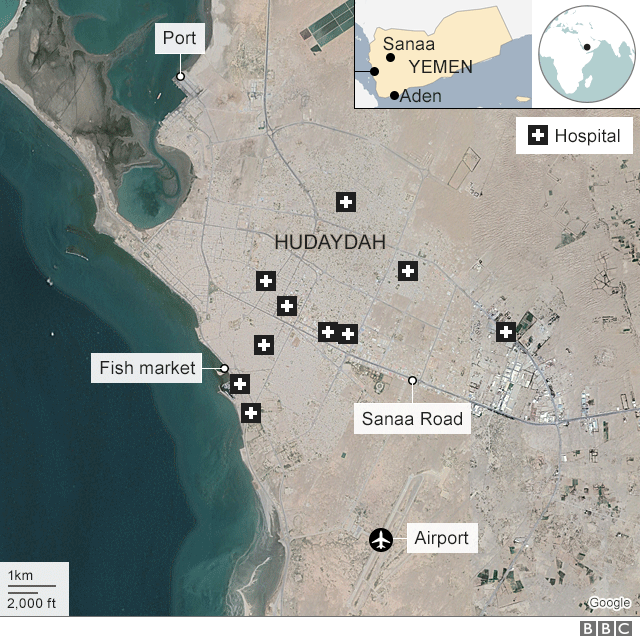Tensions in the Middle East have reached a boil recently, with Israel launching air strikes on Houthi-controlled ports in Hodeidah, Yemen. You might be wondering, what does this mean for the region? To fully grasp the implications, let’s dive into the background and the potential consequences of these military actions.
Understanding the Context
The Houthi movement in Yemen, which is an armed political group, has been at the forefront of a long-standing conflict that has plummeted the nation into chaos. Took the helm in 2015, the Houthis have faced off against a coalition, primarily led by Saudi Arabia, which seeks to restore the internationally recognized government of President Abdrabbuh Mansur Hadi.
Israel’s involvement adds another layer to this already complex scenario. To understand Israel’s interest in Yemen, one must consider the broader geopolitics of the region. The Houthis have been supported by Iran, a country that Israel sees as a significant threat. Therefore, by launching airstrikes, Israel aims to disrupt Iranian influence and curb the arms supply chains that could reach its adversaries.
The Air Strikes: What Happened?
Recently, Israeli forces carried out precision air strikes targeting military installations in the port city of Hodeidah which the Houthis control. This operation is reported to have taken place under the cover of night, a tactic often used to minimize civilian casualties. The strikes are said to have focused on weapon depots and launching pads, signaling a serious intent to degrade the Houthis’ military capacity.
Impacts on Hodeidah
Hodeidah is a crucial port for Yemen; it’s not just a military stronghold, but also the lifeline for aid. What’s the fallout for civilians? With Yemen already facing one of the world’s worst humanitarian crises, these military actions can exacerbate the suffering of an already vulnerable population. The blockade on aid delivery due to military operations means more families could face food shortages and lack of medical supplies.

Regional Reactions
After the airstrikes, responses poured in from major regional players. Iran condemned Israel’s military action, threatening consequences that could spiral into further conflict. Saudi Arabia and the UAE, who have been weary of Iranian influence in Yemen, seem to view Israel’s actions as an advantage. This leads to a tricky game for local governments, caught between foreign pressures and internal stability.
Global Reactions
On the global stage, reactions have ranged from supportive to condemning. Western countries appear to back Israel’s right to defend itself against perceived threats; meanwhile, human rights organizations are raising alarm bells about the humanitarian impact of such military actions. The ongoing conflict can turn into a global concern, with countries forced to reconsider their diplomatic relations and strategies in the region.
What Lies Ahead?
The future looks uncertain now that Israel has stepped into the fray. Could this mean a broader confrontation involving Iran, the Houthis, and possibly other actors like the United States? Or will it lead to a revival of negotiations? It’s a waiting game as international communities monitor the situation closely, hoping for a resolution without further escalation.
Conclusion
In conclusion, Israel’s airstrikes on the Houthi-controlled port of Hodeidah mark a significant development in a conflict that seems never-ending. The stakes are high, not just for Yemen but also for regional dynamics in the Middle East. As the situation unfolds, it becomes increasingly crucial to keep an eye on how these events will reshape the landscape. Dialogue may still be the best path forward, but only time will tell if the involved parties will choose this over conflict.
FAQs
1. Why did Israel target Hodeidah?
Israel targeted Hodeidah to undermine Houthi capabilities and disrupt Iranian influence in the region.
2. What is the status of the humanitarian crisis in Yemen?
Yemen is facing one of the world’s worst humanitarian crises, exacerbated by ongoing conflict, blockades, and airstrikes.
3. How are Iran and other nations reacting?
Iran condemned the strikes and threatened retaliation, while Saudi Arabia and the UAE see a potential ally in Israel against Iranian influence.
4. Could this escalate into a wider conflict?
There is a significant risk of escalation that could draw in other countries, especially if regional tensions rise further.
5. What might happen next for Yemen and its people?
For Yemen and its people, the immediate future looks bleak, with potential for increased military action and worsening humanitarian conditions unless diplomatic efforts resume.
